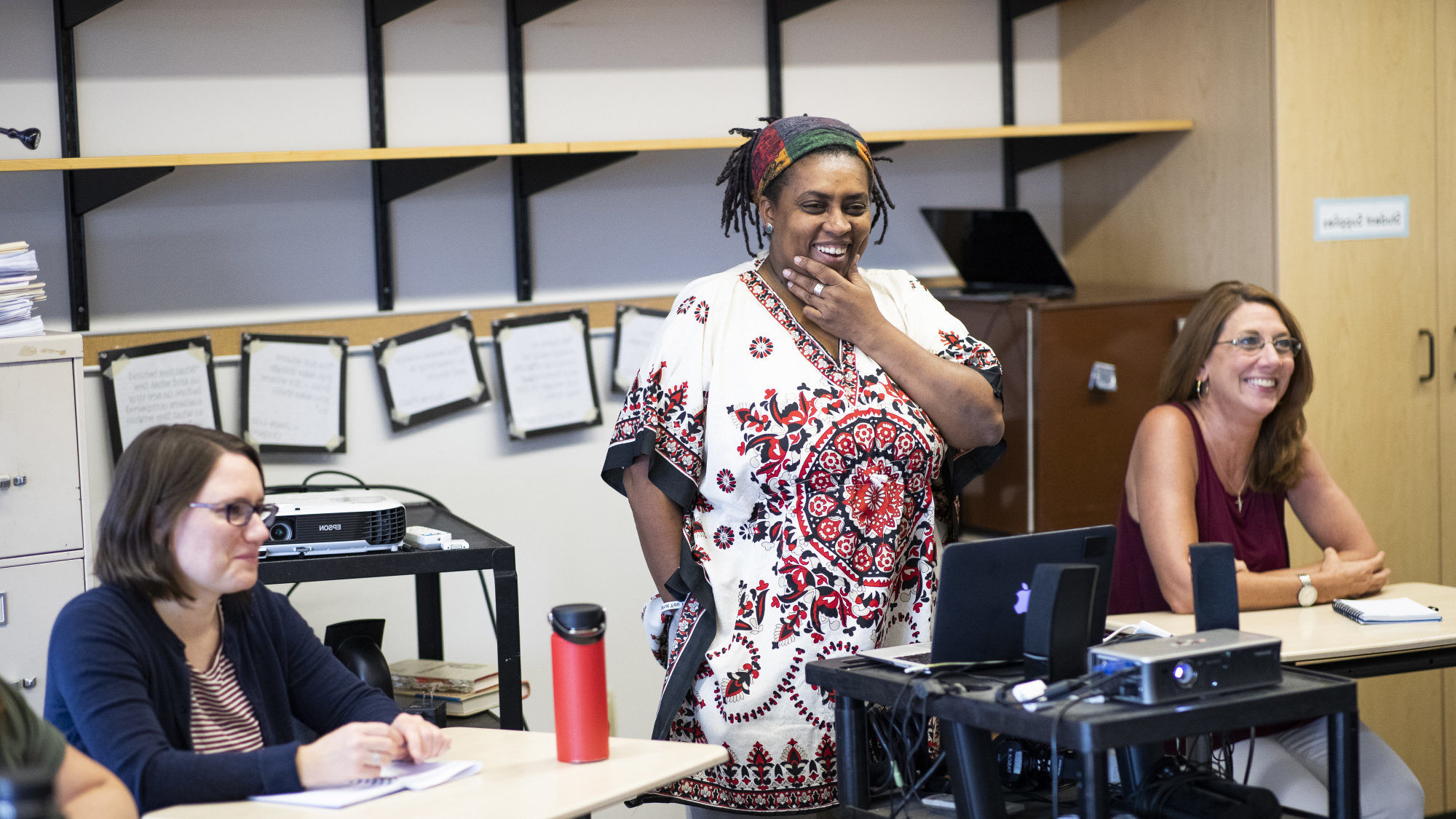What should educators know about artificial intelligence? The Western Pennsylvania Writing Project at the University of Pittsburgh set out to explore answers to that question in partnership with technologists at the CREATE Lab, a part of the Carnegie Mellon University’s Robotics Institute that aims to empower local citizens to use technology in order to improve their lives and community.
In a series of seminars open to K-12 teachers, the two long-time partners discussed readings on artificial intelligence and new technology and engaged in activities together, posing questions such as, “If you were able to get free AI equipment for your classroom, what would you be willing to give up?”
“That question provided really rich discussion,” recalled Michelle King, a Western Pennsylvania Writing Project co-director. “Because a lot of time we haven’t looked closely at what we were willing to give up to get certain things.”
Western Pennsylvania Writing Project’s partnership with CREATE Lab (Community Robotics, Education, Technology and Empowerment Lab) began almost a decade ago with a documentary project for local high school students called Hear Me. Writing project instructors guided students on identifying topics and scriptwriting and the lab on the technical aspects of filming.
In 2018, the partners decided to explore together the implications of artificial intelligence for education. They jointly planned a series of five 90-minute study sessions for their own staff, local teachers, and others who work with educators to strengthen schools.
In one session, participants were given paper wallets with currency labeled with attributes such as attention, power, integrity, good will towards others, and privacy. They then discussed what they’d be willing to pay for each kind of technology flashed on the screen.
For instance, King noted, Chromebooks are an affordable technology that provides more students with computer access in the classroom. But the educational advantages and savings can come at the expense of privacy, she explained, as Google is able to collect data on students’ web browsing histories, search engine results, and stored documents.
Discussions were seminar-style, with no expert presenters and everyone in the room—including K–12 teachers, technologists, and writing project staff—considered “co-learners,” said King.
Co-learning rather than lecturing is key to the National Writing Project’s approach, she explained, as it draws on the knowledge and insights of novices and experts alike and leads to deeper thinking and learning.
Beatrice Dias, co-director of outreach at CREATE Lab, said the writing project’s approach to co-learning has given her new insight on how to work with teachers. “Oftentimes when I was doing technology workshops, I stood in front of the room and saw myself as the knowledge-giver,” she explained. “The writing project has helped me see how that doesn’t honor the expertise of teachers in the room. That’s been really helpful for me in my growth.”
By regarding their differing backgrounds and experiences as strengths, and by honoring questions as they emerge, teams from WPWP and CREATE have been able to find their way towards new collaborative work. “Our biggest question in an age of technology is, ‘What does it mean to be human?’” explained Western Pennsylvania Writing Project co-director, Melissa Butler.

